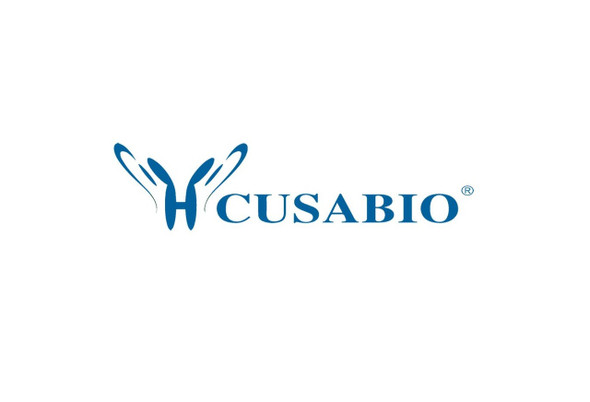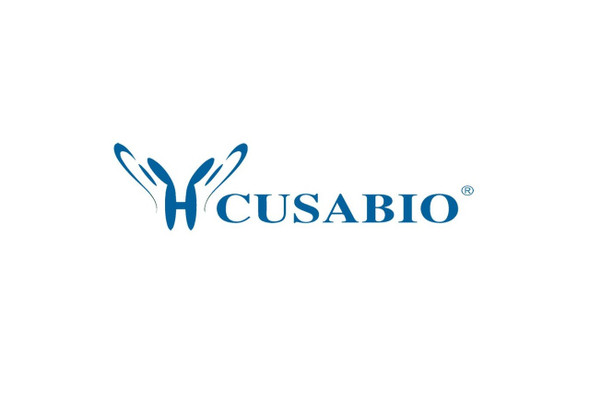Cusabio Bos taurus Recombinants
Recombinant Bovine Enteropeptidase (TMPRSS15), partial | CSB-YP018824BO
- SKU:
- CSB-YP018824BO
- Availability:
- 25 - 35 Working Days
Description
Recombinant Bovine Enteropeptidase (TMPRSS15), partial | CSB-YP018824BO | Cusabio
Alternative Name(s): Enterokinase Serine protease 7 Transmembrane protease serine 15 ENTK, PRSS7
Gene Names: TMPRSS15
Research Areas: Cell Biology
Organism: Bos taurus (Bovine)
AA Sequence: IVGGSDSREGAWPWVVALYFDDQQVCGASLVSRDWLVSAAHCVYGRNMEPSKWKAVLGLHMASNLTSPQIETRLIDQIVINPHYNKRRKNNDIAMMHLEMKVNYTDYIQPICLPEENQVFPPGRICSIAGWGALIYQGSTADVLQEADVPLLSNEKCQQQMPEYNITENMVCAGYEAGGVDSCQGDSGGPLMCQENNRWLLAGVTSFGYQCALPNRPGVYARVPRFTEWIQSFLH
Source: Yeast
Tag Info: C-terminal 6xHis-tagged
Expression Region: 801-1035aa
Sequence Info: Partial
MW: 28.3 kDa
Purity: Greater than 85% as determined by SDS-PAGE.
Relevance: Responsible for initiating activation of pancreatic proteolytic proenzymes (trypsin, chymotrypsin and carboxypeptidase A). It catalyzes the conversion of trypsinogen to trypsin which in turn activates other proenzymes including chymotrypsinogen, procarboxypeptidases, and proelastases.
Reference: "Enterokinase, the initiator of intestinal digestion, is a mosaic protease composed of a distinctive assortment of domains." Kitamoto Y., Yuan X., Wu Q., McCourt D.W., Sadler J.E. Proc. Natl. Acad. Sci. U.S.A. 91:7588-7592(1994)
Storage: The shelf life is related to many factors, storage state, buffer ingredients, storage temperature and the stability of the protein itself. Generally, the shelf life of liquid form is 6 months at -20?/-80?. The shelf life of lyophilized form is 12 months at -20?/-80?.
Notes: Repeated freezing and thawing is not recommended. Store working aliquots at 4? for up to one week.
Function: Responsible for initiating activation of pancreatic proteolytic proenzymes (trypsin, chymotrypsin and carboxypeptidase A). It catalyzes the conversion of trypsinogen to trypsin which in turn activates other proenzymes including chymotrypsinogen, procarboxypeptidases, and proelastases.
Involvement in disease:
Subcellular Location: Membrane, Single-pass type II membrane protein
Protein Families: Peptidase S1 family
Tissue Specificity: Intestinal brush border.
Paythway:
Form: Liquid or Lyophilized powder
Buffer: If the delivery form is liquid, the default storage buffer is Tris/PBS-based buffer, 5%-50% glycerol. If the delivery form is lyophilized powder, the buffer before lyophilization is Tris/PBS-based buffer, 6% Trehalose, pH 8.0.
Reconstitution: We recommend that this vial be briefly centrifuged prior to opening to bring the contents to the bottom. Please reconstitute protein in deionized sterile water to a concentration of 0.1-1.0 mg/mL.We recommend to add 5-50% of glycerol (final concentration) and aliquot for long-term storage at -20?/-80?. Our default final concentration of glycerol is 50%. Customers could use it as reference.
Uniprot ID: P98072
HGNC Database Link: N/A
UniGene Database Link: UniGene
KEGG Database Link: KEGG
STRING Database Link: STRING
OMIM Database Link: N/A









